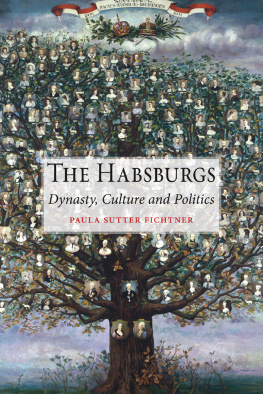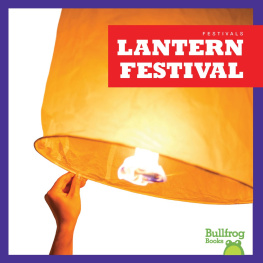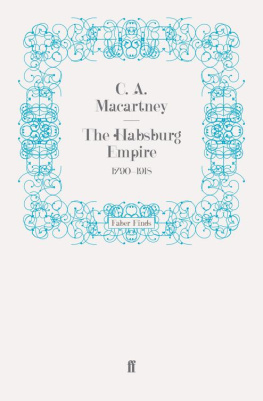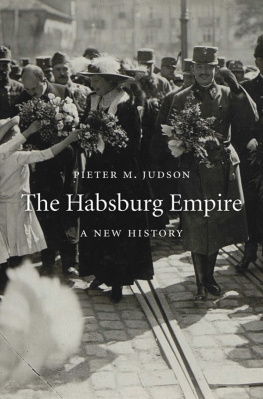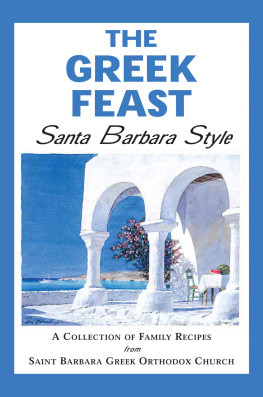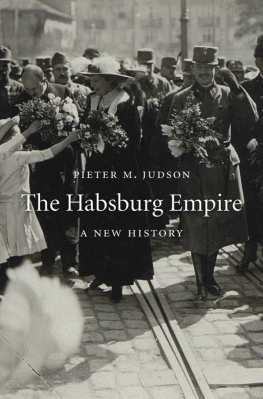An Orthodox Festival Book in the Habsburg Empire
First published 2006 by Ashgate Publishing
Published 2016 by Routledge
2 Park Square, Milton Park, Abingdon, Oxon OX14 4RN
711 Third Avenue, New York, NY 10017, USA
Routledge is an imprint of the Taylor & Francis Group, an informa business
Copyright Jelena Todorovi 2006
Jelena Todorovi has asserted her moral right under the Copyright, Designs and Patents Act, 1988, to be identified as the author of this work.
All rights reserved. No part of this book may be reprinted or reproduced or utilised in any form or by any electronic, mechanical, or other means, now known or hereafter invented, including photocopying and recording, or in any information storage or retrieval system, without permission in writing from the publishers.
Notice:
Product or corporate names may be trademarks or registered trademarks, and are used only for identification and explanation without intent to infringe.
British Library Cataloguing in Publication Data
Todorovi, Jelena
An Orthodox Festival Book in the Habsburg Empire: Zaharija Orfelins Festival
Greeting to Mojsej Putnik (1757)
1. Orfelin, Zaharija, 17261785 Criticism and interpretation. 2. Putnik, Mojsej
Inauguration. 3.Putnik, Mojsej Poetry. 4.Srpska pravoslavna crkva History. I.Title
891.8213
Library of Congress Cataloging-in-Publication Data
Todorovi, Jelena.
An Orthodox Festival Book in the Habsburg Empire: Zaharija Orfelins Festive
Greeting to Mojsej Putnik (1757) / by Jelena Todorovi.
p. cm.
Includes bibliographical references (p. ) and index.
1. Srpska pravoslavna crkva History 17th century. 2. Srpska pravoslavna crkva
History 18th century. 3. Orfelin, Zaharija, 17261785. Pozdrav Mojseju Putniku.
1. Orfelin, Zaharija, 17261785. Pozdrav Mojseju Putniku. English & Serbian. II. Title.
BX713.T63 2006
281.94971dc22
2005034906
ISBN 13: 978-0-7546-5611-1 (hbk)
Contents
- Appendix: Transcription and Translation of Orfelins Festive Greeting
Bogdan Terzi and Jelena Todorovi
This book has been in preparation for a long time, and its preliminary research goes back to the beginning of my PhD thesis. It was the initial discovery of Orfelins rich pictorial and literary world that made me wish to unravel all the hidden layers of meaning that existed in it. I wanted to make this most intriguing material widely available, but as is often the case with works of art created in less-known environments, and in languages like Russian Slavonic that are not commonly known, I knew how difficult would be to make this wish a reality. Thus, this book would not have been possible were it not for the foresight, enthusiasm, energy and immeasurable help of Professor Peter Davidson, a colleague and a friend. It was with his firm conviction and belief in the importance of this subject and my scholarly powers that this book was written and published. He also acted as a most meticulous and erudite editor.
I know that, in these circumstances, it is inevitable that individuals and institutions, however great their contribution, cannot be fully acknowledged here. The work on this book had been greatly eased by the help offered by scholarly institutions in different countries. In the first place I ought to mention the staff of the University Library in Wrocaw who were so kind to let me work on Orfelins manuscript kept in their collections and later provide me with state of the art reproductions of the Festive Greeting. In London, the Special Collections of National Art Library in the Victoria & Albert Museum and the Manuscript and Rare Books Department of the British Library were especially valuable. The resources and the kind staff of the Warburg Institute offered me important help and advice throughout my work. In an equal measure, I owe a debt of gratitude to the Library and Archives of the Serbian Academy of Sciences and Arts, and particularly to its Chief Librarian, Ljubinka Vasi, who performed daily miracles in finding books and documents that had been presumed lost for decades. I also owe much to enlightening conversations with my professors and friends who helped me solve intractable problems concerning festivals and festival production, as well as problematic concepts of Baroque culture Miroslav Timotijevi, Bruce Boucher, Wendy Bracewell, Diana Detholff and Marian Malet.
Finally, I would like to thank my parents, to whom I also owe the opportunity to write this book. Not only did they have tireless curiousity in discussing the complex issues of Baroque festivals, but also (especially my mother) provided me with intellectual energy, endless critical insights, and tireless patience as my initial proofreader.
Orfelins festival book presents a considerable rarity, being the richest example which exists of a full synopsis of a festival created in the Archbishopric of Karlovci. This manuscript of 1757 contains a lavishly decorated panegyric in Russian Slavonic, executed in refined calligraphy of the highest order, and displays (over 33 pages) a thematically diverse set of 22 illustrations. The scale of the manuscript is large (50.5 36.5 cm) since Orfelin used the full drawing sheet as a format for his written and illustrated pages. The entire book is bound in a sky-blue silk with the embroidered monogram of Mojsej Putnik on the front, and is protected with an elaborately embossed leather box in which it is still preserved.
From the literary point of view, Orfelins panegyric is one of the few preserved in its entirety, and definitely the one of the highest conceptual complexity. Therefore, the Festive Greeting is one of the most comprehensive accounts of the festival life of the Orthodox high clergy in the Habsburg lands. This festival book was composed for an Orthodox Archbishop when Orthodoxy was a marginalized religion within the Habsburg territories. Since the end of the eighteenth century the manuscript has been in Poland, and it is currently kept in the University Library in Wrocaw (IV fol. 88 s.). It was thought to be lost until its rediscovery at the end of the nineteenth century (1885) by the Austrian scholar Johan Nehring.
Despite its importance, both for Serbian festival culture and even more for the history of both Serbian Baroque literature and visual arts, Orfelins book was never analysed in its entirety, and even less in the context of the spectacle of state, where, by its form and subject matter, it rightly belongs. This festival book, in the first place, was perpetually wrongly perceived, and scholarship on it suffered from fragmented viewpoints. The Festive Greeting appeared fairly late on the Yugoslav scholarly horizon due to two important facts. One was that the art of the Serbian Baroque, and even more its festival tradition, was regarded as a matter of little importance well into the second half of the last century a fate that was shared by many examples of festival production in Europe at the time.
When it was first presented to the Yugoslav public by Smilja Mii in 1954, the manuscript was reproduced (with fairly low-quality images) in its entirety and accompanied by the summary description of its contents and its history from its creation in 1757 until the end of World War Two and its inclusion in the Special Collections of Wrocaw University Library. The importance of such an endeavour After this pioneer effort, several scholars undertook the task of analysing The Festive Greeting and displayed what I have identified as a second problem the fragmentation of scholarly approach that presents a major obstacle in the perception of this festival book. Although, by its very form and function, it was a highly multifaceted piece, historians, art historians and musicologists nevertheless, from the 1950s onwards, treated it separately.


